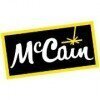Filter interviews by
Hexagon Nutrition Executive Production Interview Questions and Answers
Hexagon Nutrition Executive Production Interview Experiences
1 interview found
Interview Questionnaire
1 Question
- Q1. Pharmaceutical manufacturing related Questions job description
Top trending discussions






Interview questions from similar companies

Executive Production Interview Questions & Answers
Harvest Gold Industriesposted on 16 Mar 2024
I applied via Recruitment Consulltant and was interviewed in Feb 2024. There were 2 interview rounds.
(2 Questions)
- Q1. What is the type of extruder? How extrusion works?
- Ans.
An extruder is a machine used to create objects with a fixed cross-sectional profile. Extrusion works by pushing material through a die to create a specific shape.
There are different types of extruders such as single screw, twin screw, and ram extruders.
Extrusion involves heating the material above its glass transition temperature and then forcing it through a die to create the desired shape.
Examples of extruded produc
- Q2. Which KPI's are measured in your process?
- Ans.
Key Performance Indicators (KPI's) measured in the process include production efficiency, quality metrics, and cost effectiveness.
Production efficiency - measuring the amount of output produced compared to the resources used
Quality metrics - tracking the number of defects or errors in the production process
Cost effectiveness - evaluating the expenses incurred in relation to the output generated
(3 Questions)
- Q1. Why are you looking for a change in every 2 years?
- Q2. Why are you asking for 63 percent hike? Please justify
- Ans.
I am requesting a 63% hike to align my salary with industry standards and reflect my increased responsibilities and contributions.
My current salary is below market average for my role and experience level.
I have taken on additional responsibilities and successfully delivered key projects.
I have consistently exceeded performance targets and received positive feedback from colleagues and clients.
A 63% increase would brin...
- Q3. What is the capacity of process you supervise? Manpower, machinaries and production.
- Ans.
I supervise a production process with a capacity of 200 employees, 50 machines, and an output of 10,000 units per day.
Capacity of 200 employees in manpower
Capacity of 50 machines in machinery
Production output of 10,000 units per day

(10 Questions)
- Q1. Tell me about yourself?
- Q2. Previous company experience?
- Q3. What is fermentation
- Ans.
Fermentation is a metabolic process that converts sugars into acids, gases, or alcohol using microorganisms like yeast or bacteria.
Fermentation is a anaerobic process, meaning it occurs without the presence of oxygen
Common examples include the fermentation of sugars to produce alcohol in beer, wine, and spirits
Yeast is a common microorganism used in fermentation to produce bread, beer, and wine
Lactic acid fermentation ...
- Q4. Difference between Aerobic and Anaerobic fermentation
- Ans.
Aerobic fermentation requires oxygen, while anaerobic fermentation does not.
Aerobic fermentation produces more ATP than anaerobic fermentation.
Anaerobic fermentation is used in the production of alcohol, while aerobic fermentation is used in the production of vinegar.
Aerobic fermentation is more efficient in terms of energy production.
Anaerobic fermentation can occur in the absence of oxygen, such as in muscle cells du
- Q5. Fat percentage of Tonned, skimmed and full cream milk?
- Ans.
Toned milk has around 3% fat, skimmed milk has less than 0.5% fat, and full cream milk has around 6-8% fat.
Toned milk typically has around 3% fat content.
Skimmed milk has less than 0.5% fat content.
Full cream milk usually contains around 6-8% fat.
Fat percentage can vary slightly based on the brand and processing methods.
- Q6. Which bacteria responsible for milk spoilage?
- Ans.
The bacteria responsible for milk spoilage include psychrotrophic bacteria, coliform bacteria, and lactic acid bacteria.
Psychrotrophic bacteria can grow at refrigeration temperatures and are commonly found in raw milk.
Coliform bacteria, such as Escherichia coli, can indicate poor hygiene during milk production.
Lactic acid bacteria can produce off-flavors and cause milk to sour.
- Q7. Pasteurisation temperature of milk?
- Ans.
Pasteurisation temperature of milk is typically around 72°C for 15 seconds.
Pasteurisation is a process of heating food to a specific temperature for a set amount of time to kill harmful bacteria.
The standard pasteurisation temperature for milk is around 72°C (161.6°F) for 15 seconds.
This process helps to extend the shelf life of milk and make it safer for consumption.
- Q8. Biological Food hazards?
- Ans.
Biological food hazards are risks to food safety caused by living organisms such as bacteria, viruses, parasites, and fungi.
Biological food hazards can lead to foodborne illnesses and outbreaks.
Common biological hazards include Salmonella, E. coli, Listeria, and Norovirus.
Proper food handling, storage, and cooking practices are essential to prevent biological food hazards.
Regular cleaning and sanitation of food prepara...
- Q9. What is HACCP ?
- Ans.
HACCP stands for Hazard Analysis and Critical Control Points, a systematic preventive approach to food safety.
HACCP is a management system in which food safety is addressed through the analysis and control of biological, chemical, and physical hazards from raw material production, procurement and handling, to manufacturing, distribution and consumption of the finished product.
It involves identifying potential hazards i...
- Q10. FSSAI FULL FORM?
- Ans.
Food Safety and Standards Authority of India
FSSAI is a government body responsible for ensuring food safety and regulating the food industry in India
It sets standards for food products and ensures their quality and safety
FSSAI issues licenses to food businesses to ensure compliance with regulations
Example: FSSAI registration is mandatory for all food businesses in India
Interview Preparation Tips
Thank you

(6 Questions)
- Q1. Production Engineer quality engineer AutoCAD designing
- Q2. Quality engineer AutoCAD designing
- Q3. Production Engineer
- Q4. Quality engineer
- Q5. AutoCAD designing
- Q6. Please request your sir interview
- Ans.
🙏🙏 please check my resume sir
Interview Preparation Tips

I applied via Company Website

Basics about mechanical topics
(1 Question)
- Q1. Asked about mechanical topics.
Interview Preparation Tips

(2 Questions)
- Q1. What is GCV and how we calculate it
- Ans.
GCV stands for Gross Calorific Value. It is the amount of heat released when a fuel is burned completely.
GCV is a measure of the energy content of a fuel.
It is calculated by measuring the heat released when the fuel is burned completely.
The unit of GCV is usually expressed in joules per kilogram (J/kg) or British thermal units per pound (BTU/lb).
GCV is important in determining the efficiency of a fuel and its potential...
- Q2. Gross calorific value
- Ans.
Gross calorific value is the amount of heat released when a fuel is burned completely.
It is the total amount of heat produced when a fuel is burned completely
It is measured in units of energy per unit of fuel mass
It is used to determine the energy content of fuels
Example: The gross calorific value of coal is around 25 MJ/kg
Interview Preparation Tips

I applied via Approached by Company and was interviewed before Feb 2022. There were 5 interview rounds.

(4 Questions)
- Q1. Tell me about yourself
- Q2. Job responsibilities in current organisation
- Q3. Current and expected CTC
- Q4. Why you are willing to change
(4 Questions)
- Q1. Current job responsibilities
- Q2. Role in current organisation
- Q3. Product specifications and line details
- Q4. Food safety and FSMS
(4 Questions)
- Q1. Achievement in organisation
- Q2. Challenge faced in organisation
- Q3. Expecting in new organisation
- Ans.
I am expecting to join a new organisation that values teamwork, innovation, and continuous improvement.
I am looking forward to working with a team that collaborates well and shares ideas.
I hope to be part of an organisation that encourages innovation and creativity.
I am excited to join a company that is committed to continuous improvement and growth.
I expect to learn new skills and gain valuable experience in my role a...
- Q4. Case study in conflict management
Verbal, logical reasoning, puzzle
Interview Preparation Tips

Production Officer Interview Questions & Answers
Sahyadri Farmers Producer Companyposted on 13 Feb 2022

(7 Questions)
- Q1. What are your salary expectations?
- Q2. What is your family background?
- Q3. Share details of your previous job.
- Q4. Why are you looking for a change?
- Q5. Where do you see yourself in 5 years?
- Q6. What are your strengths and weaknesses?
- Q7. Tell me about yourself.

Executive Production Interview Questions & Answers
Harvest Gold Industriesposted on 16 Mar 2024
I applied via Recruitment Consulltant and was interviewed in Feb 2024. There were 2 interview rounds.
(2 Questions)
- Q1. What is the type of extruder? How extrusion works?
- Ans.
An extruder is a machine used to create objects with a fixed cross-sectional profile. Extrusion works by pushing material through a die to create a specific shape.
There are different types of extruders such as single screw, twin screw, and ram extruders.
Extrusion involves heating the material above its glass transition temperature and then forcing it through a die to create the desired shape.
Examples of extruded produc
- Q2. Which KPI's are measured in your process?
- Ans.
Key Performance Indicators (KPI's) measured in the process include production efficiency, quality metrics, and cost effectiveness.
Production efficiency - measuring the amount of output produced compared to the resources used
Quality metrics - tracking the number of defects or errors in the production process
Cost effectiveness - evaluating the expenses incurred in relation to the output generated
(3 Questions)
- Q1. Why are you looking for a change in every 2 years?
- Q2. Why are you asking for 63 percent hike? Please justify
- Ans.
I am requesting a 63% hike to align my salary with industry standards and reflect my increased responsibilities and contributions.
My current salary is below market average for my role and experience level.
I have taken on additional responsibilities and successfully delivered key projects.
I have consistently exceeded performance targets and received positive feedback from colleagues and clients.
A 63% increase would brin...
- Q3. What is the capacity of process you supervise? Manpower, machinaries and production.
- Ans.
I supervise a production process with a capacity of 200 employees, 50 machines, and an output of 10,000 units per day.
Capacity of 200 employees in manpower
Capacity of 50 machines in machinery
Production output of 10,000 units per day

I applied via Walk-in and was interviewed in Oct 2021. There were 2 interview rounds.

(4 Questions)
- Q1. Q. Microorganisms responsible for milk fermentation?
- Ans.
Lactic acid bacteria are responsible for milk fermentation.
Lactic acid bacteria convert lactose into lactic acid, which causes milk to sour and thicken.
Common examples of lactic acid bacteria include Lactobacillus bulgaricus and Streptococcus thermophilus.
These bacteria are used in the production of yogurt, cheese, and other dairy products.
The fermentation process also helps to preserve the milk and extend its shelf li...
- Q2. Q Factors affecting milk spoilage?
- Ans.
Factors affecting milk spoilage include temperature, pH, bacteria, light exposure, and contamination.
Temperature: higher temperatures accelerate spoilage
pH: acidic conditions promote spoilage
Bacteria: presence of bacteria can cause spoilage
Light exposure: can cause oxidation and spoilage
Contamination: introduction of foreign substances can cause spoilage
- Q3. Q. Microorganisms use for bread making? Q. Aseptic Packaging?
- Ans.
Microorganisms like yeast are used in bread making to ferment the dough and produce carbon dioxide gas which causes the bread to rise. Aseptic packaging is a method of packaging food products in a sterile environment to prevent contamination.
Microorganisms like yeast are added to the dough to ferment it and produce carbon dioxide gas.
The carbon dioxide gas causes the bread to rise and gives it a light and fluffy textur...
- Q4. Q. HACCP full form? Q. Food safety defination?
- Ans.
HACCP stands for Hazard Analysis and Critical Control Points. Food safety refers to the measures taken to ensure that food is safe for consumption.
HACCP is a systematic approach to identifying and controlling hazards in the food production process.
It involves seven principles: conducting a hazard analysis, determining critical control points, establishing critical limits, monitoring procedures, corrective actions, veri...
Interview Preparation Tips
Hexagon Nutrition Interview FAQs
Tell us how to improve this page.
Hexagon Nutrition Interviews By Designations
- Hexagon Nutrition Clinical Nutrition Executive Interview Questions
- Hexagon Nutrition Client Relationship Manager Interview Questions
- Hexagon Nutrition Clinical Nutrition Manager Interview Questions
- Hexagon Nutrition Executive Production Interview Questions
- Hexagon Nutrition Microbiologist Interview Questions
- Hexagon Nutrition Product Expert Interview Questions
- Hexagon Nutrition Quality Assurance Trainee Interview Questions
- Hexagon Nutrition Quality Engineer Interview Questions
- Show more
Interview Questions for Popular Designations
- Production Engineer Interview Questions
- Production Supervisor Interview Questions
- Production Manager Interview Questions
- Production Officer Interview Questions
- Production Interview Questions
- Senior Production Engineer Interview Questions
- Production Chemist Interview Questions
- Production Operator Interview Questions
- Show more
Executive Production Interview Questions from Similar Companies
Hexagon Nutrition Executive Production Reviews and Ratings
based on 5 reviews
Rating in categories
|
Clinical Nutrition Executive
38
salaries
| ₹2.3 L/yr - ₹5.3 L/yr |
|
Assistant Manager
30
salaries
| ₹4.3 L/yr - ₹8 L/yr |
|
Senior Executive
20
salaries
| ₹3.4 L/yr - ₹5.1 L/yr |
|
Executive Production
19
salaries
| ₹2.5 L/yr - ₹4 L/yr |
|
Store Executive
14
salaries
| ₹3.2 L/yr - ₹4.8 L/yr |

Danone Foods Beverages

Abbott

Nestle

GlaxoSmithKline Consumer Healthcare
- Home >
- Interviews >
- Hexagon Nutrition Interview Questions >
- Hexagon Nutrition Executive Production Interview Questions









